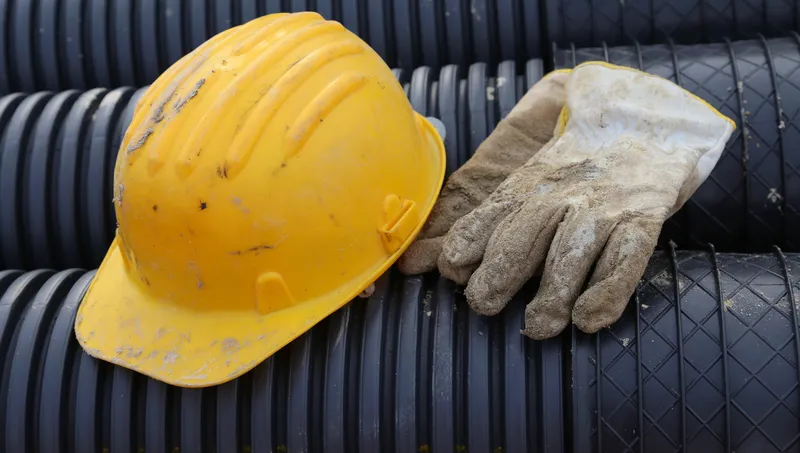
Hardstaff Barriers said that it is now ensuring that all personal protective equipment (PPE) at the end of its useful life is recycled.
PPE has been widely used in the workplace for many years, but since the outbreak of Covid-19, its use has skyrocketed, according to the company, part of UK-based Hill and Smith Holdings, an international group of companies operating within the infrastructure and galvanizing markets..
Hardstaff Barriers, based in the UK and which manufactures and supplies vehicle restraint systems and security barriers, has teamed up with Granite Workwear, an ISO14001 certified company which has launched its own textile destruction and recycling service for old or damaged workwear and PPE. Granite Workwear destroys all clothing, including boots and belts, by recycling it into new fibres, for a variety of products including new fabrics.
Plastics from safety glasses and helmets are re-chipped for re-use in the plastic industry. Metals from studs, buttons, zips and toe caps and melted down for reuse.
The only product that it cannot recycle is the high visibility tape, which goes to incineration.
The service is carried out by Granite at no cost, with customers simply needing to send the clothing back to them. “As far as we know, we are also the first company to offer complete recycling and re-tasking of all workwear and PPE products that have been purchased from us, ensuring a full circular economy and not just a recycling economy,” said Simon Towle, director at Granite Workwear.
Meanwhile, Hill and Smith said that is has now completed the move of all its vehicle restraint system subsidiaries into one operating unit, called VRS Solutions Group.
The latest company to move over and get a brand remake is Varley and Gulliver, Hill and Smith’s UK-manufacturer of bridge parapets, pedestrian barriers and passive sign supports. All products are tested to EN1317, CE marked and MASH and NCHRP350 approved and many have been installed worldwide: pedestrian parapets at the Sheikh Zayed Bridge in Abu Dhabi where the rails were designed to resemble an airplane wing, the Erskine Bridge in Scotland and at the Sitra Causeway in Bahrain.






